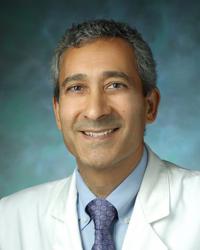Research Lab Results
-
Gail Daumit Lab
Research in the Gail Daumit Lab is devoted to improving overall health and decreasing premature mortality for people with serious mental illnesses, such as schizophrenia and bipolar disorder. We have conducted observational studies to determine and convey the burden of physical health problems in this vulnerable population, and are currently leading a randomized trial funded by the National Heart, Lung, and Blood Institute to test a comprehensive cardiovascular risk reduction program in people with serious mental illness.
-
Chulan Kwon Laboratory
The C. Kwon Lab studies the cellular and molecular mechanisms governing heart generation and regeneration. The limited regenerative capacity of the heart is a major factor in morbidity and mortality rates: Heart malformation is the most frequent form of human birth defects, and cardiovascular disease is the leading cause of death worldwide. Cardiovascular progenitor cells hold tremendous therapeutic potential due to their unique ability to expand and differentiate into various heart cell types. Our laboratory seeks to understand the fundamental biology and regenerative potential of multi-potent cardiac progenitor cells – building blocks used to form the heart during fetal development — by deciphering the molecular and cellular mechanisms that control their induction, maintenance, and differentiation. We are also interested in elucidating the maturation event of heart muscle cells, an essential process to generate adult cardiomyocytes, which occurs after terminal differentiation of the progenitor cells. We believe this knowledge will contribute to our understanding of congenital and adult heart disease and be instrumental for stem cell-based heart regeneration. We have developed several novel approaches to deconstruct the mechanisms, including the use of animal models and pluripotent stem cell systems. We expect this knowledge will help us better understand heart disease and will be instrumental for stem-cell-based disease modeling and interventions for of heart repair. Dr. Chulan Kwon is an assistant professor of medicine at the Johns Hopkins University Heart and Vascular Institute. -
Cheryl Dennison Himmelfarb Lab
Research in the Cheryl Dennison Lab aims to improve cardiovascular care for high-risk groups through multidisciplinary and health information technology-based methods. Our studies focus on reducing system and provider obstacles to implementing cardiovascular guidelines in various health care environments. Additional research interests include chronic illness management, quality of care, interdisciplinary teamwork and provider behavior. -
Dhananjay Vaidya Lab
Research conducted in the Dhananjay Vaidya Lab focuses on the prevention of heart disease, with special emphasis on cardiometabolic risk factors, genetics in high-risk families, cardiovascular epidemiology, statistics and vascular biology. We also provide consultation on study design as well as plan and oversee data analyses for projects supported by the Center for Child and Community Health Research.
-
Daniel Nyhan Lab
The Daniel Nyhan Lab studies vascular changes that accompany aging to determine the underlying causes and find ways to reverse the process. One goal of our research is to identify the factors that cause vascular stiffness. Our hope is that our work in vascular biology will lead to new ways to improve vascular compliance and thereby improve cardiovascular function and perioperative risk.
-
David Graham Lab
The David Graham Lab studies the consequences of HIV interactions with the immune system, the resulting pathogenesis and how to sabotage these interactions. We apply advanced technologies like mass spectrometry to dissect processes at the molecular level. We are also actively involved in cardiovascular research and studies the ways proteins are organized into functional units in different cell types of the heart. Major projects in our lab are organized into three major areas: (1) H/SIV pathogenesis and neuropathogenesis, (2) Cardiovascular disease, and (3) High technology development -
Elizabeth Selvin Lab
The Elizabeth Selvin Lab examines the intersection of epidemiology, clinical policy and public health policy. One of our key goals is to use the findings of epidemiologic research to inform the screening, diagnosis and treatment of diabetes, cardiovascular disease and kidney disease. Much of our work looks at biomarkers and diagnostics related to diabetes and diabetes complications. Our findings — linking hemoglobin A1c (HbA1c) to diabetic complications and identifying the role of A1c in diabetes diagnosis — have influenced clinical practice guidelines.
-
Eliseo Guallar Lab
Research in the Eliseo Guallar Lab focuses on the epidemiology and prevention of cardiovascular diseases. We have a special interest in the roles played by mercury, arsenic, lead and cadmium in cardiovascular disease development. Our methodological interests include determining threshold effects in epidemiological studies and applying statistical methods to epidemiological problem-solving.
-
Kathleen Gabrielson Laboratory
Research in the Kathleen Gabrielson Laboratory focuses on the signal transduction of cardiovascular toxicities in vitro, in cardiomyocyte culture and in vivo using rodent models. Specifically, the research focuses on understanding the mechanisms of various cancer therapies that induce cardiac toxicities. Currently, we are testing prevention strategies for these toxicities by studying the cardiac effects of the anthracycline doxorubicin (adriamycin) and the immunotherapeutic agent, Herceptin, anti-erbB2. We are focusing on the signal transduction pathways in the heart that are modulated by anti-erbB2 treatment, which in turn, worsens doxorubicin toxicity. Thus, understanding the mechanisms behind the combined toxicity of doxorubicin and anti-erbB2 will pave the way for the design of strategies to reduce toxicity, identify patients at risk and potentially allow higher levels of this effective combination therapy to be used with an improved long-term survival in patients.
Principal Investigator
Department
-
Nauder Faraday Lab
The Nauder Faraday Lab investigates topics within perioperative genetic and molecular medicine. We explore thrombotic, bleeding and infectious surgical complications. Our goal is to uncover the molecular determinants of outcome in surgical patients, which will enable surgeons to better personalize a patient’s care in the perioperative period. Our team is funded by the National Institutes of Health to research platelet phenotypes, the pharmacogenomics of antiplatelet agents for preventing cardiovascular disease, and the genotypic determinants of aspirin response in high-risk families.



